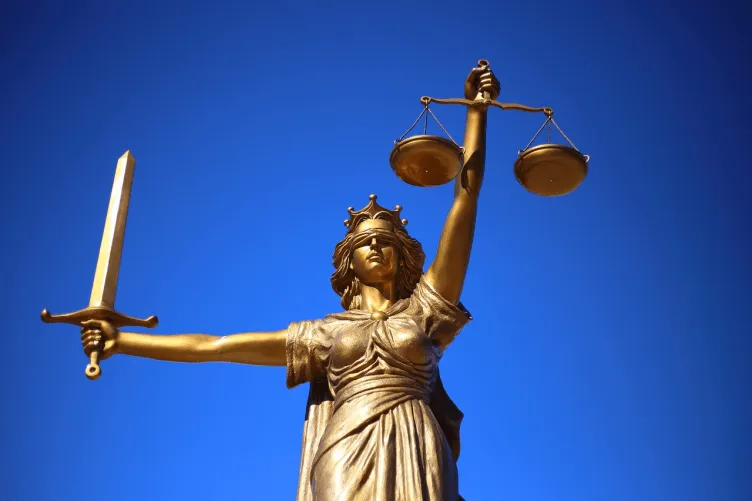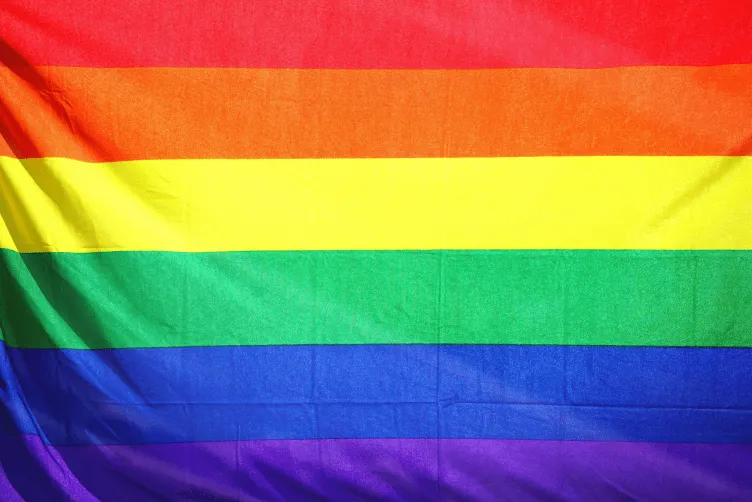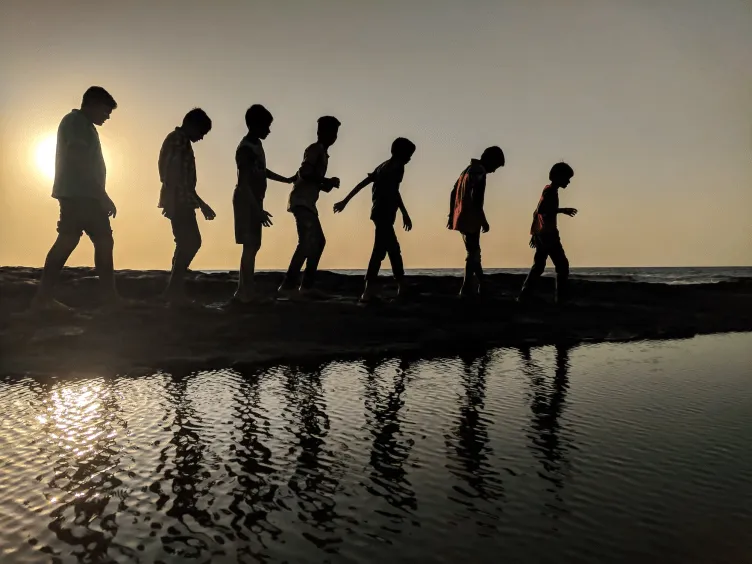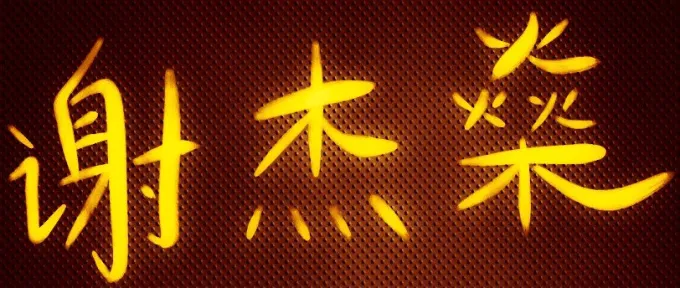
During the National Day Rally, Prime Minister Lee Hsien Loong announced that the government will seek to repeal Section 377A of the Penal Code. The LGBTQ community and their allies see it as a hard-won victory. For others, it will merely be the start of a long and gruelling campaign ahead.
S377A criminalises male homosexual activity. Dating to the colonial era, it was inherited by the new republic post-independence. In 2007, Parliament debated on whether to retain or repeal it. The government’s final decision was to retain S377A—but not actively enforce it. It was a compromise, meant to assuage the concerns of the conservatives and the religious community, while assuring the LGBTQ community that the government would not seek to actively discriminate against them.
It wasn’t enough.
Retaining a law without intending to enforce it demeans the justice system. Laws without teeth are but paper tigers—until they are rearmed. The current government may decide _no_w not to enforce a law, but there is no guarantee it would not change its mind later, or that a future government may decide to reverse its position. Further, a state that can decide whether or not to enforce a certain law will forever face the temptation to selectively enforce other laws.
Repealing S377A is an extremely rare move by the government to roll back its own power, in the face of changing cultural and social norms. Humans reason and negotiate with other, but the state compels obedience by force. Therefore, a government should only possess enough power to carry out the necessary duties of government, and no more. This move is aligned my own principles—principles that are only rarely found in Singapore. Had the news of the repeal come 15 years ago, I would have celebrated.
Today, I am bracing myself for a coming storm.
The political environment of 2007 is a far cry from that of 2022. Back then, the LGBTQ community insisted that there was ‘no gay agenda’. Today, LGBTQ activists and legislators are pushing for radical laws in America and Europe. In 2007, the LGBTQ community was relatively low-key. Today, the world celebrates Pride month, with corporations, sports teams, government agencies, sports teams and religious organisations around the world signalling support.
In 2007, the LGBTQ community didn’t talk about children.
Today, children are the focus of LGBTQ activism.
Pride parades in residential areas, with children exposed to adults in scanty clothing. Drag shows aimed at children, including in Singapore during Pink Dot 2022. LGBTQ propaganda inserted into children’s media. Teachers indoctrinating children with radical gender ideology. Groomers encouraging children to ‘come out’ as transgender while hiding it from children.
In 2007, I could almost believe that there was no gay agenda, and that the radicals would be sidelined.
Today, the radicals are running the show in the West.
And Singapore’s civic society takes its cue from the Western hard left.

The Community Response
The LGBTQ community sees the repeal as the culmination of decades of tireless work by generations of activists. But it is only the first step. According to the full statement posted on Pink Dot’s Facebook page:
The repeal of Section 377A is the first step on a long road towards full equality for LGBTQ+ people in Singapore. Our immediate priorities in the wake of Section 377A will be to tackle the areas of discrimination that we continue to face at home, in schools, in workplaces, and in housing and health systems.
The true impact of repeal will be determined by how the people of Singapore respond to it, and treat each other, in the days and months to come. It must be accompanied by the rejection of hate, of stigma, of discrimination, of erasure. It must be the beginning of us finding common ground and having open conversations about our collective futures.
We cannot allow this to polarise us, deepen fissures, or make an already vulnerable community more susceptible to contempt. We must, in the face of potential backlash, strengthen ties within our community and look out for one another.
Concurrent with the repeal of Section 377A, Prime Minister Lee said that the government will also seek to amend the Constitution to uphold the definition of marriage as a union between one man and one woman, to prevent future legal challenges.
To this, Pink Dot replied:
Any move by the government to introduce legislation or constitutional amendments that signal LGBTQ+ people as unequal citizens is disappointing.
We urge the government not to heed recent calls from religious conservatives to enshrine the definition of marriage into the Constitution. Such a decision will undermine the secular character of our Constitution, codify further discrimination into supreme law, and tie the hands of future Parliaments.
Per this article by Channel News Asia:
IndigNation SG noted that “marriage has never been on (its) agenda”.
“As an organisation, IndigNation is far more interested in undoing the harms caused to our communities by keeping an archaic law on the books for far too long. Unequal housing laws, discriminatory employment practices, media censorship and so much more needs to be undone,” it told CNA.
A media statement issued by Oogachaga’s chairman Bryan Choong and executive director Leow Yangfa also urged Members of Parliament to “avoid conflating the repeal of 377A with other issues”.
“LGBTQ Singaporeans have families, have children, have committed relationships and are already married. Many LGBTQ Singaporeans may also have no desire to marry. There is no need for families and marriage to be protected from the LGBTQ community, as many of us are already in them,” it said.
These statements put together confirm what I’d suspected:
The LGBTQ community will not be satisfied with the repeal of S377A. They will continue to pursue other goals, either through activism or social programmes. They see the repeal of S377A as a sign of success, and they will push forward with renewed vigour. They will circle the wagons around the community, especially against what they deem to be backlash from religious conservatives, and push forward.
They have said not one word about the concerns of the rest of society.
What Does ‘Full Equality’ Mean?
That is the question hanging over the press statements.
What is ‘full equality’? What does it look like? What does ‘progress’ mean, and why is it a good thing?
Words like ‘love over fear’ and ‘rejection of hate’ are pretty but empty. The community has yet to articulate a coherent vision of what a society with ‘full equality’ looks like. There are no concrete goals laid out in their press statements or social media platforms. I have not seen any LGBTQ activist grapple squarely with the issues raised by the other side of the aisle beyond repeating the same talking points.
Reading the press statements above, you might be forgiven for thinking that Singapore is extremely hostile towards LGBTQ people. You’ll find many stories of rejection and ostracism from the LGBTQ community, in families and workplaces. As for myself, I will speak only to what I do have knowledge of: the polis.
All adult Singaporeans have the right to vote. Freedom of speech, assembly and religion, as laid down in the Constitution and as manifested in daily life, apply to both the LGBTQ community and the general population. All men must serve National Service, regardless of sexual orientation. Healthcare providers are largely neutral on the issue of sexual orientation as well, although the partners of LGBTQ patients are not recognized as family members.
The organs of state are therefore already mostly neutral towards the LGBTQ community. Which is not to say there isn’t discrimination. I’m going to touch on some critical areas in which I expect future contention—areas that everyone in Singapore has to pay attention to.
Gays in the Military
Any serviceman in the Singapore Armed Forces who openly declares himself as a homosexual will be assigned a unique identifier: Category 302. He will be assigned a counsellor if he needs psychological support. He will also be further assessed to determine his suitability for combat training versus non-frontline duties, and whether he should be permitted to stay in camp.
In 2018, a gay serviceman claimed that he was made to sign an agreement to refrain from engaging in homosexual activities during service. Transgender servicemen are deemed unfit for military service and exempted from National Service.
The SAF does not comment on the rationale behind 302 policy. The Singapore LGBT encyclopedia offers some reasons, from irrational fears to protecting gay personnel from abuse. I have another explanation:
Section 377A.
A gay serviceman with access to classified information is a target for foreign spies. A spy can entrap a gay man, then blackmail him into giving up his secrets. If he refuses, then the spy will leak compromising material to the authorities, exposing him to prosecution.
This was a common tactic used by the Soviet Union during the Cold War. Soviet spies would identify gay targets, send in a gay man to lure him into a private space, and secretly record them together. Singapore, being at the crossroads of the world, will always be of interest to superpowers and other rivals.
By shuffling a gay servicemember into an unimportant position, the SAF could minimise the impact of foreign espionage operations. Even though the government stated in 2007 that it would no longer enforce S377A, so long as the law remained on the books, the possibility of future prosecution exists. Certainly the social stigma could potentially harm a serviceman’s career in the SAF.
With the repeal of S377A, I would expect the SAF to also cease all discriminatory activities towards gay servicemen. Let them serve the nation to the best of their abilities. The SAF could study how foreign militaries manage gay servicemen, with an eye towards maximising every serviceman’s potential.
However, the ban on transgender personnel must remain.
Patients with gender dysphoria report much higher levels of suicidal ideation and suicide attempts than the general population. National Service places servicemen under stress for prolonged periods as a matter of course. Couple that with access to firearms, explosives and heavy equipment, and you get a recipe for disaster.
It takes between 2 to 5 years to complete gender transition, including surgery and hormones. As National Service lasts for 2 years, it is impractical for the SAF to allow personnel to undergo gender transition while in the service. In addition, during this period, a patient may undergo significant physiological changes, including weight gain, blood clots, loss of bone density, and others. These changes will make it impossible for a soldier to be combat-effective.
Transgender patients on hormone therapy who suddenly stop taking hormones may experience many negative health effects, such as depression, anxiety, and suicidal ideation. In wartime, the military cannot guarantee a steady flow of ammunition, food, water, medicine and other vital supplies. A transgender soldier cut off from supply will be at risk of debilitating injury. This is why, until recently, the US military did not recruit transgender personnel for combat duties—along with anyone dependent on medication.
As we have seen in this relatively simple example, reality must trump ideology. It is well and good to celebrate ‘equality’ and the like, but it cannot come at the expense of wider society. Keep this in mind as we go along.
Marriage, Public Housing and Children
I’ve covered this issue at length in my previous blog post. In brief, marriage is tied to public housing in Singapore, which in turn is tied to land scarcity. Unlike other countries, Singapore cannot simply build new public housing estates when it runs out. There simply isn’t much land to go around to begin with.
Public housing in Singapore is designed with an eye towards serving at least two generations of residents, even three. Members of the LGBTQ community are markedly less likely to produce biological children than the regular population. The public housing sector is already under significant pressure. Presently, a thousand newlyweds—or even three thousand—could find themselves competing for less than a hundred newly-built flats. This was certainly my experience during my three attempts at applying for a new flat.
Allowing LGBTQ partners equal status with opposite-sex spouses in applying for flats would simply add even more pressure to the market, delaying applications and housing for everyone across the board. The government, with a duty to ensure the continued survival of society, would have no choice but to prioritise heterosexual couples for public housing.
Singapore has no resources but her people. Her children are thus tied to the very survival of the nation. Again, as I explained previously, the children of LGBTQ parents tend to experience worse life outcomes than children of opposite-sex spouses. Further, the former is also more likely to become LGBTQ themselves—which could further shrink the birth rate. One of Singapore’s most pressing issues is fertility. Singapore’s total fertility rate fell to 1.1 in 2020—a historic low. Any policy that could reduce the TFR and reduce the quality of life of future generations should not be pursued.
Media Representation
Singapore has a longstanding policy of restricting the depiction of LGBTQ people in local media channels. Foreign media with LGBTQ content are either censored or restricted to adults. Local TV shows that do show LGBTQ characters are few and far between, and usually do so in a negative light. This is a long-standing sore point with the LGBTQ community.
15 years ago, I might have stood with the LGBTQ community. Today, I look at the content pumped out by Big Media, and now I must stand against them.
The LGBTQ community focuses on visibility and representation. But visibility is promotion, and representation is approval.
This is basic marketing. This is why products appear prominently in big budget shows, and why celebrities endorse products or otherwise use them in media while drawing attention to brands and sponsors. To say that visibility is not promotion is to claim that marketing doesn’t work.
Hollywood has gone woke. It is focused on pumping out remake after remake, infusing them with woke ideology, including LGBTQ representation. More than just entertainment, they are pushing the idea that it is acceptable, even cool, to be LGBTQ. This idea is why 21% of Generation Z identify as LGBTQ, and the basis of social contagion of transgenderism.
The publishing industry has gotten into the act, pushing out books that combine depictions of children and LGBTQ content. Queer Young Adult fiction, aimed at children, is an emerging genre, aimed at normalising LGBTQ youths. Singapore’s own Hugo Award nominated writer, Neon Yang, writes a queer YA series, set in a universe in which children decide their gender at the age of 16. Children’s publishers push out books like The GayBCs which introduce children to LGBTQ material.
Western LGBTQ activists are pushing for the sexualisation of children. The predators, groomers and enablers are driving the movement. And the Singapore LGBTQ community takes its cues from them.
Singapore—and the world—has a duty to protect its children. Therefore, all governments must enact legislation to ban the depiction of LGBTQ material in children’s media. Should the LGBTQ community object to this, then I must ask:
Do you also object to the sexualisation of children?
Sex Education and Gender Reassignment
Sex education in my time was abysmal. In my schooldays, I received a grand total of two (2) sex ed lessons, both of which were little more than lectures on the evils of porn. The second one was especially memorable: it attempted to frame porn as a gateway drug to torture, kidnapping and murder.
If this were true, then Japan would be the murder capital of the world.
Yet the answer to such drivel is not more drivel. The LGBTQ community and the feminists will soon band together to push their ideas of sex ed into schools. I would be extremely cautious with such content, especially if the true purpose is the sexualisation of children and to covertly groom them.
It has already happened in America. Left unchecked, it will come to Singapore.
My stance is clear. No radical gender ideology. No hiding of content from parents, schoolteachers and regulators. No grooming.
For example, children with gender dysphoria should not be allowed to undergo any kind of transitioning—including social or partial transitioning. Schools should not encourage children with gender dysphoria to present as the opposite sex, nor pursue gender reassignment, or otherwise treat them as anything other than their birth sex.
In children, gender dysphoria desists naturally in the majority of cases. However, if encouraged, it does not desist at all. Thus, the simplest treatment option is simply counselling, with a view towards understanding and resolving any feelings of confusion. There is no need to push gender dysphoric children towards irreversible gender reassignment, especially since they are likely to grow out of it. Education and mental health professionals working with gender dysphoric children should not encourage gender reassignment in any way, shape or form. Likewise, they should not intentionally expose children to material that promotes LGBTQ ideology.
Any attempt to do so should be treated as child sexual abuse.

The Next Seven Generations
The LGBTQ community surely has its concerns and ideals—but so do the religious conservatives. That group is quite capable of speaking for itself. I will instead offer a perspective novel to Singapore: time.
Policy decisions that affect society will ripple across generations. Its impact will be felt decades, even centuries, from now. When thinking of public policy, it is not enough to address the desires of a small group in the present. Lawmakers must consider the impact on society for the next seven generations.
LGBTQ ideology turns vulnerable children into mutilated, sick and sterile adults with a lifelong dependency on Big Government handouts and Big Pharma products. That’s why the power players support the movement: they see children as future lifelong consooomers.
A society that destroys its children destroys its future. A society that protects its children protects its future. This is the key driver of the religious conservatives: how to preserve society for generations to come.
Religion is a vehicle to transmit prosocial values across generations, centuries, even millennia. World religions have guided countless millions of people across a sweep of history beyond human comprehension—and still continue to do so. Singapore may be a secular state, but the people are not. Singapore is home to many ancient and famous religions, which guide the convictions of its believers.
The LGBTQ community has urged the government to ignore the religious conservatives. Yet the religious conservatives tend to think not in terms of months or years, but in decades and centuries, even eternity itself. Their timescale is not limited to the length of their lives, but spans also the lifetimes of their children, and their children’s children. They are the ones most likely to have children. They have a living stake in the future of society. Their faith communities remind them of these long timescales every time they gather for worship. Every day, when they see their children, they are reminded of those stakes. Their genetic legacy is tied to the long-term health of society and the nation.
They have skin in the game at a far more visceral level than most LGBTQ people will ever experience.
Children are the future of society. Children thrive in a stable household with a mother and a father. This ideal doesn’t always occur, but it is the universal norm across every successful nation, and it should be something every society should strive to uphold and protect. The family is the building block of civilization itself, and public policy should reflect that. A society that does not protect the family, that does not protect its own future, has no future.
This is the perspective that the religious conservatives are coming from. Enshrining marriage in the Constitution isn’t simply about injecting religious values into a secular society. These conservatives come from different faiths—Christianity, Islam, Buddhism, and so on—but they are united in the idea of upholding marriage, and with it, the family structure universal across cultures and centuries. To them, this move is about ensuring that the state will think of its impact of its policies on the next seven generations.
With this in mind, there is a major concern that must be addressed.
The government seeks to amend the Constitution to “protect” the definition of marriage from constitutional challenges. This means that in the future, should this amendment pass, no one may petition the Supreme Court to strike it down on constitutional grounds.
If the government can amend the Constitution to protect one thing from a Constitutional challenge, then it will be able to do this for anything else. Should this continue, the right of the people to seek redress from the state will be steadily eroded.
The religious conservatives must not celebrate this measure. Today such a move may benefit their interests. Tomorrow, another measure may hurt them. And should that day come, they may well discover that they cannot challenge it.
The only way to prevent this is to make your voices heard and urge the government to back off from such a drastic move. And, yes, that means working with the other side of the aisle—for both sides.

The Other Side of the Aisle
The LGBTQ community calls for progress and an equal society, but they have not articulated what that society looks like. They implore people to reject hate, fear and discrimination, but they won’t consider the opinions of the other side. At the same time, they also claim they want to ‘find common ground and have open conversations about our collective futures.’
Very well. Let me open the conversation with these questions:
What values do you hold to, and how are they compatible with a prosperous and stable society?
What is your vision of an equal society, and how will it unfold over the next seven generations?
Will you protect the children from the predators, the groomers and the enablers among you?
I’ve been waiting for answers to these questions for 15 years. I’m still waiting.

My books are free from woke ideology. Check out my bestselling YA novel DAWN OF THE BROKEN SWORD here!